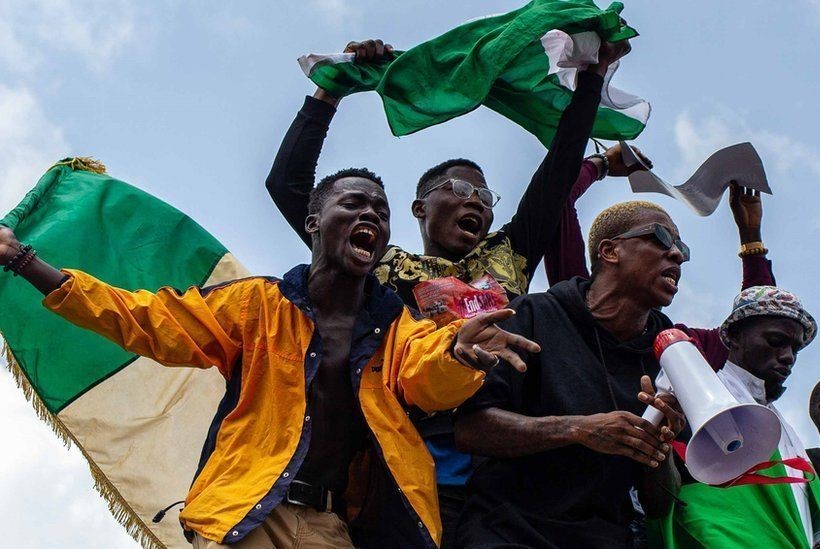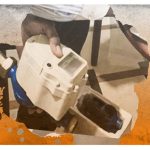Derinsola Ajibade has never voted before in an election, not because she wasn’t above 18 but has never felt the need to do so until the 20223 election cycle.
“Election and I are parallel lines. I had never felt that patriotic obligation to vote”, the 28-year-old Ibadan-based hairstylist tells Prime Progress.
But the 2023 general elections were different. The momentum and buildup to the election were so exciting that Ajibade was eager to be among the93.46Millioneligible Nigerian voters even when it didn’t come easy.
“From the point of registration, Permanent Voter Cards collection to the election days, the processes were too difficult and frustrating,” she said.
Ajibade expected that her favourite candidate, Peter Obi of the Labour Party, would win the election, considering he wastoppingmost pre-election opinion polls.
She was shocked that her preferred candidate didn’t win. And when she heard the news that Obi was approaching the court to challenge the election results, she was positive he would reclaim his mandate.
That court where all losers in a presidential election will approach for redress is the Presidential Election Petition Tribunal or PEPT. Peter Obi, Atiku Abubakar, the presidential flag bearer of the People’s Democratic Party and the Allied Peoples Movement all explored the option.
In Nigeria, for presidential election petition appeals, the Supreme Court has the final say after kicking off from the PEPT. The governorship election appeal travels from the tribunal through the court of appeal to the Supreme Court. However, in respect of national and state houses of assembly, the right to appeal terminates at the court of appeal.
Ismail Aremu, another first-time voter, was positive that Atiku Abubakar, who came second during the election, would usurp the declared winner.
He thought his preferred candidate, who won his trust because of his vision to unify the country, got the highest number of votes but was rigged out.
He believed that because Bola Tinubu’s (the eventual winner of the election) party controlled the centre, he and his party did all within their power to retain authority.
“I took time to study him and his plans and discovered that he was the right person. He won my polling booth, but I was shocked he lost my state”, he said, describing the candidate for whom he later voted.
Aremu thought that his preferred candidate, unlike the eventual winner, racked up the expected numbers in his bases while the eventual winner lost some of his strongholds.
“The president lost where he was a two-term governor. He lost former President Muhammadu Buhari’s home state and didn’t win in Osun state, where many people believe he is from. So I was hopeful that the court would give Atiku what rightfully belonged to him“.
For Abdullahi Oriolowo, a 20-year undergraduate, 2023 was his first time participating in an election, but he made a different political choice. He voted for Bola Tinubu, whom the Independent National Electoral Commission declared victorious and affirmed by the tribunal’s judgement as the authentic winner.
However, he was suspecting that the tribunal might compromise, judging by the heat and pressure on it.
“I was very anxious because I believed that the media and our president’s opponents heaped so much pressure on the judiciary. How will they say that the president didn’t deserve to win because he didn’t score 25% of votes in the FCT when he scored in more than 20 other states?” he wonders.
The judgment at a glance
On Wednesday, September 6, 2023, all ofJustice Haruna Tsammani, Justice Stephen Adah, Justice Monsurat Bolaji-Yusuf, Justice Moses Ugo and Justice Abba Mohammed unanimously agreedthat Nigeria’s main opposition parties failed to prove all their claims against President Bola Tinubu, Kashim Shetima, the All Progressives Congress and INEC beyond reasonable doubts.
The over 700-page judgement makes an interesting read. Sylvester Udemezue, who has exhaustively gone through the judgement, submits that, among others, the judges concluded that the Electoral Act does not specifically provide for electronic transmission of election results but provides for only manual collation.
“On the allegation that Tinubu was convicted in the USA and as such disqualified from contesting on the grounds of previous conviction, the Tribunal held that this ground of the Petitioners’ petition fails because there is no evidence that Tinubu was convicted of any criminal offence involving fraud or dishonesty in Nigeria or elsewhere within the 10 years preceding the 2023 election,”, Udemezue explains.
INEC is not under any obligation (is not mandated) to electronically transmit election results. The Tribunal held that the Federal High Court had already ruled on such a case.
“That the Petitioners have failed to show that the INEC’s failure to electronically transmit election results was deliberate, with a view to manipulate the results and the totality of evidence, the petitioners have failed to prove substantial non-compliance by INEC with the provisions of the Electoral Act, 2022”, Udemezue says that the PEPT concluded.
He adds that the judges ruled that none of the petitioners could prove their chains of election irregularities while he (President Tinubu) did not need to obtain 25% of votes in the Federal Capital Territory since he had won up to 25 % votes in each of at least 25 states in Nigeria because it does not enjoy any special status.
Will new voters trust the judiciary after now?
Derinsola Ajibade never loved court cases, and her hopes were dashed with the tribunal’s ruling, it compounded her indignation towards the Nigerian judiciary.
“How will they tell me that none of the issues raised by the petitioners are worthwhile? Is that to say that those lawyers didn’t do their jobs?“, she questions.
She’s disappointed in the outcome of the judgement, but that won’t stop her from remaining active in the country’s electoral and political processes, a hobby she had nurtured since running to the polls.
But she has lost confidence in the election tribunal. However, it is most likely that the 2023 election in Nigeria has broken new grounds by drawing correctness only to voters’ choices. This means that Ajibade thinks the judiciary is compromising because the judgement did not favour the candidate he voted for.
For the same reason, Ismail Aremu thinks the judges were biased in their judgement. Though he argued that the judgement did not reflect the will of the people, his position that if Atiku Abubakar had won at the tribunal, everyone would have been happy by now indicates where his biases tend towards.
Ismail Oriolowo thinks the court has done the right thing. To him, the tribunal sieved reality and facts from emotions and sentiments.
“Because the court didn’t favour anyone does not invalidate the belief in the court. The court has just done the right thing“, he says.
If the judgement had gone the other way around, Oriolowo also agreed that he might not be happy with the outcome of the court, adding that accepting the outcome of the tribunal could be tough, but it should be the point every Nigerian should strive to reach if the country is keen to advance its democracy.
For both old and new voters, the 2023 election and the outcome of the presidential election petition tribunal merit scores based on their biases.
Those who voted for the eventual winner believe that the country had just rounded off an exhaustive but commendable process, while those who find themselves on the losing side think every pillar of the electoral and judicial processes are saboteurs who had greedily compromised. Therefore, their trust in the system is hitting a downward spiral.
Derinsola Ajibade, a 28-year-old hairstylist, voted for the first time during Nigeria's 2023 general elections, motivated by the strong momentum surrounding the elections. She hoped for a victory for her preferred candidate, Peter Obi, but was disappointed when he did not win. Both Peter Obi and Atiku Abubakar challenged the election results in the Presidential Election Petition Tribunal, which ultimately ruled against them, affirming Bola Tinubu's victory. The ruling judiciary stated that the claims of election irregularities and the necessity for electronic transmission of results were unfounded.
The judgment has left new voters like Ajibade skeptical of the judicial process, questioning its impartiality and effectiveness. Ismail Aremu, a supporter of Atiku, also felt the judgment was biased, while Abdullahi Oriolowo, who voted for Tinubu, believed the tribunal acted correctly. Despite their disappointments, new voters remain committed to participating in the electoral process though with varying levels of trust in the judiciary. The 2023 election has polarized opinions, with winners lauding the process and losers decrying perceived systemic failures.






